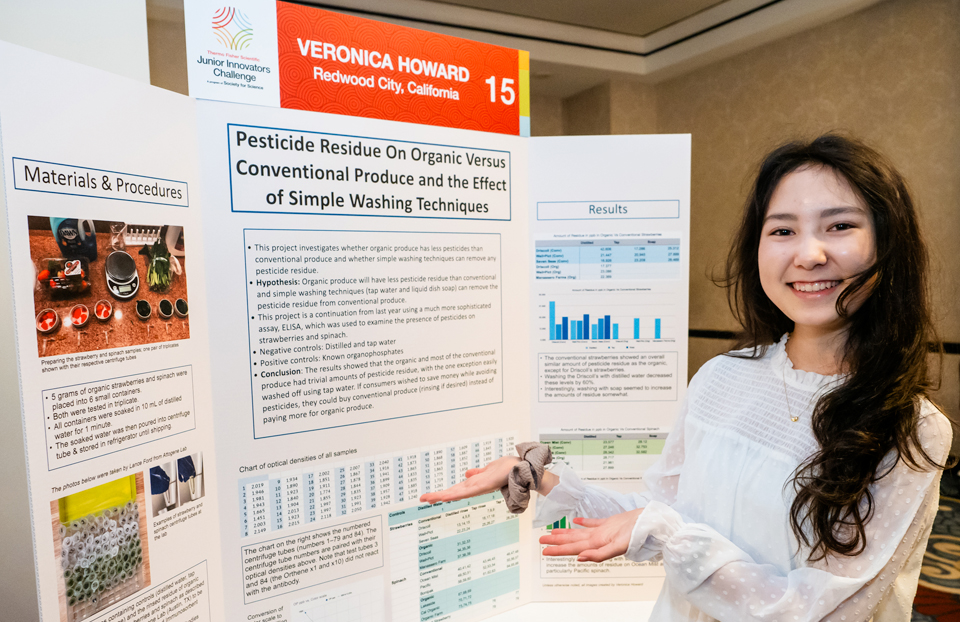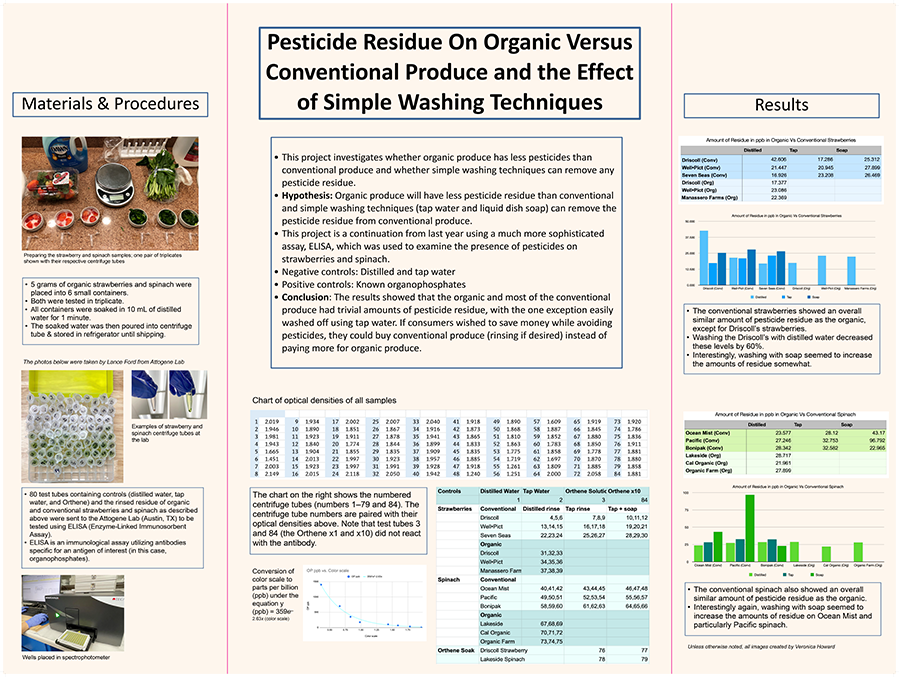Veronica Howard
8th Grade, Stanford Online High School
Redwood City, CA
Veronica investigated whether organic produce has more pesticide residue than conventional produce, and if the residue could be easily washed off.
Pesticide Residue on Organic versus Conventional Produce and the Effect of Simple Washing Techniques
VIEW POSTERProject Background
Veronica’s parents always sought out organic foods. They thought these items had fewer human-made pesticides and were safer to consume. But one day, Veronica and her parents met an inspector for the U.S. Department of Agriculture. She told them that pesticides from conventional farms could reach organic farms if they were located next to one another. “Since then, my parents and I have always wondered if organic produce was actually pesticide-free and if it’s worth spending the extra money,” Veronica says. She investigated whether organic produce has more human-made pesticides than conventional produce, and whether the pesticides could be easily washed off.
Tactics and Results
Veronica tested multiple brands of organic and conventional strawberries and spinach from several stores. These produce items usually contain the highest levels of pesticides, she says. She soaked the foods in distilled water to capture any pesticide residue and then collected samples from the water. She repeated the process with strawberries and spinach that were washed with water alone and water plus dish soap. For a positive control, she made a solution with a human-made pesticide called Orthene, and for negative controls, she collected both tap water and distilled water. She sent all of her water samples to a lab to test them for human-made pesticides. The lab performed an enzyme-linked immunosorbent assay, or ELISA, a sensitive test that can detect certain substances. Veronica worked on a similar project last year but looked for pesticides using a much less sensitive at-home test. The lab results showed that conventional and organic spinach and strawberries had about the same amount of pesticides. Driscoll’s-brand strawberries, however, had more pesticides than the others. But washing them with water decreased pesticide residue by 60 percent. “If consumers wished to save money, they could buy conventional produce and simply wash off any possible pesticide residue,” Veronica says.

Beyond the Project
Veronica would like to test a larger assortment of produce and look for the presence of fungicides and herbicides. She also wants to try another human-made pesticide as a positive control.
Other interests
Veronica recently started archery, “I have found it to be a very interesting sport due to the patience and technique involved,” she says. She also loves playing guitar and performed at her school’s graduation showcase as the lead guitarist in a band. Veronica would like to become an environmental engineer in the future. “I am hoping to find a unique and efficient way to protect our soil and water,” she says.


